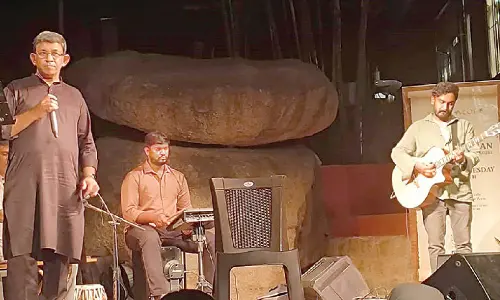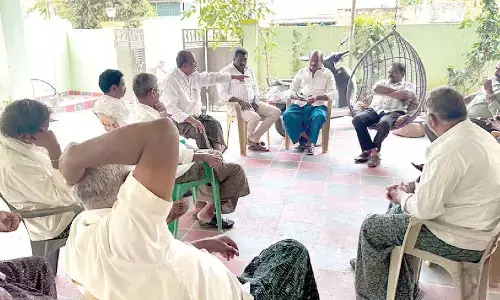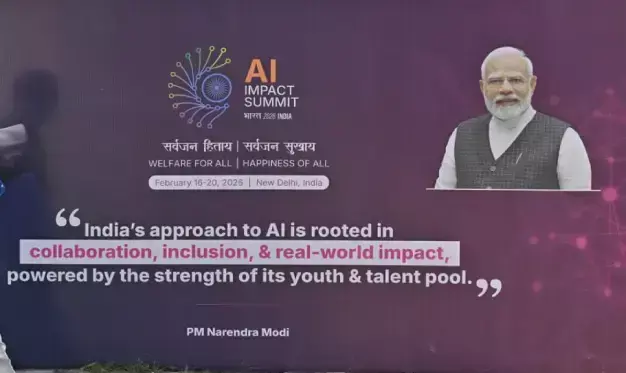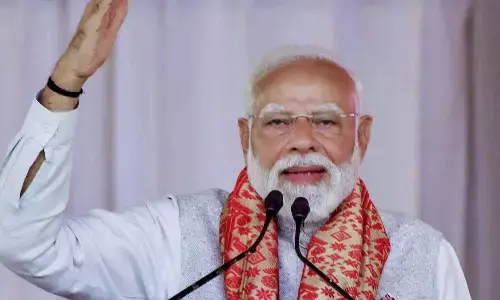MyVoice: Views of our readers - 20 Jan

MyVoice: Views of our readers - 20 Jan
Should English be the medium of instruction in AP schools?
It is highly important to have a discussion on the medium of instruction from primary education in Andhra Pradesh. The government of Andhra Pradesh has already taken a policy decision to have English as the medium of instruction, despite having a plethora of opposition to the move as introduction of English as the medium will of course result in neglect of mother tongue Telugu in schools.
Those who oppose the move are of the opinion that mother tongue has its own beauty and it authenticate both in perception and conceptualisation of learning process especially at primary schooling level.
Even in the World Telegu Conference held recently in Vijayawada, it was strongly suggested Telugu as medium of instruction.
Retired bureaucrat N Mukteswara Rao raised a beautiful argument that Language is a vehicle of thought process and only teaching in mother tongue influences the child more and leads to exploration of knowledge at budding stage of a child.
In the present day, students have no language skills. Surprisingly, those who opted for English as medium of instruction from their high school are lack three basic skills of language - reading, writing and speaking.
Interestingly, he raised the point that 65% of students who studied in English medium lack at the least basic skill but those studied in Telugu medium, struggled and learned foreign language either in three months or six months' time. They are highly successful in their lives.
So the problem here is language skills not medium of instruction. Even we have witnessed 75 years of education policies. Why is the government not serious about imparting foreign language skills? How many teachers have skills to train students in language capabilities?
How many schools teach communication skills? Is medium of instruction demanded by community at large? Does community need English language skills for their children or as the medium of instruction?
Have other developing countries formulated mandatory medium of instruction as English? How many students who studies inn English medium schools are highly successful in language skills?
The burning issue raised more when the government decided to get feedback on its policy decision, it becomes trivial as is not informed feedback, but uninformed feedback. Why feedback is not process oriented?
Just a mechanical opinion sharing with tick mark, is it really a scientific and cognitive evaluating process for healthy academics?
All these are burning issues. Developing pupil-centric education system is more important than mere changing mediums as it cannot benefit the coming generations. The big question is whether the students need language skills or English medium education.
Will English as the medium of instruction solve the problems of students, especially in language resources point of view.
There is high need to redesign and rethink for the government in introducing English as the medium of instruction. Imparting English skill is important not introducing English as the medium of instruction.
A Madhusudhan Sarada, Tirupati, Chittoor dist, AP
Congratulations Team India!
India seem to be holding all the aces in the ODI series. Their batting is coming through nicely with skipper Virat Kohli and Rohit Sharma back on the massive runs and Indian brilliant bowlers creating problem for the combative Australian batsmen.
India won the third ODI by seven wickets in the decider match against Australia to clinch the ODI series 2.1 in Bengaluru on Sunday evening. Buoyant Australia could not stop the Indian juggernaut in ODI series.
Rohit Sharma's fantastic runs with awe-inspiring batsmanship of 119 runs in 128 balls was marvellous. Skipper Virat Kohli, who scored 89 runs in 91 balls, missed a century. With Kohli's dismissal, Shreyas Iyer's unbeaten 44 runs chase put India on course for third ODI victory.
On the other hand, bowlers Mohamed Shami and Ravindra Jadeja combo rocked Australia with their brilliant bowling performance.
Credit should go to the Indian team and its fighting qualities in the ODI series. The key to India's win was picking important wickets in the middle overs.
The Indian team well revolved around batting and bowling which is a clear indication of its rich talent pool. Congratulations Team India of your thumping victory over Australia!
Kodihalli S Rao, Shreenagar, Thane, Maharashtra











